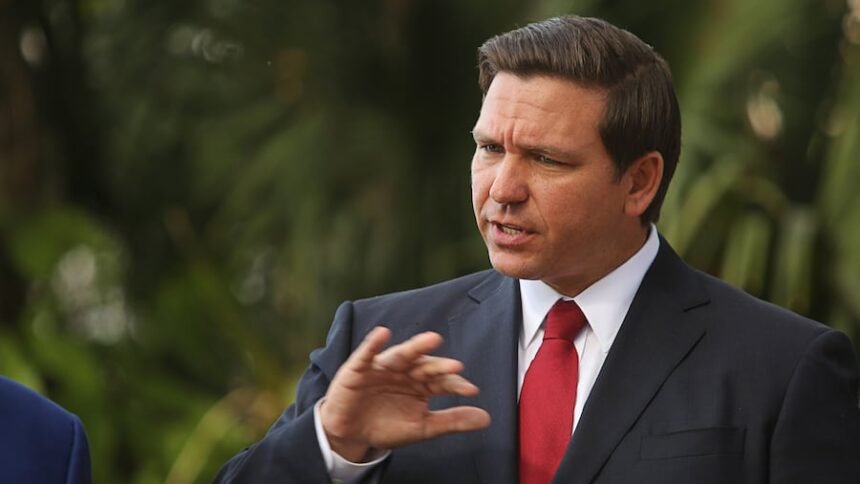Florida Governor Ron DeSantis is facing a notable standoff with state lawmakers during a recent special session, a situation that has raised eyebrows and prompted varied reactions within the political arena. This clash highlights the complexities of governance in Florida and reflects the shifting dynamics of Republican leadership.
The Special Session Breakdown
The special session was convened to address critical issues, including budgetary concerns and ongoing social policies that have become central to DeSantis’s agenda. However, the governor’s approach has not aligned seamlessly with the preferences of some lawmakers, leading to notable tensions.
As discussions unfolded, it became clear that DeSantis’s desire to push certain measures met resistance, with some legislators openly questioning his strategy. One prominent Republican senator candidly described DeSantis as a “flailing guy losing relevance,” signaling a growing sentiment among some GOP members that the governor’s influence may be waning.
Underlying Issues at Play
This standoff is not just a personality clash; it reflects deeper issues within Florida’s Republican Party. DeSantis, who has positioned himself as a leading figure in national politics, is facing scrutiny from those who feel his focus on national aspirations might be overshadowing the pressing needs within Florida.
The senator’s remark underscores a broader concern among lawmakers: while DeSantis has made headlines with controversial policies and a strong stance on social issues, the effectiveness and impact of his leadership on state matters are being called into question. As legislators grapple with their constituents’ needs, some fear that DeSantis’s ambitious national agenda may not align with local priorities.
Implications for the Future
The tension between DeSantis and state lawmakers could have significant ramifications for his political future, especially as he eyes a potential presidential run. A governor’s relationship with the state legislature is crucial, not only for passing legislation but also for cultivating a cooperative political environment.
If the standoff continues, it could lead to a fracturing within the Republican Party in Florida, where unity has been essential for maintaining control and pushing through legislative agendas. Lawmakers may be more inclined to assert their independence, potentially diminishing the governor’s ability to mobilize support for his initiatives.
Conclusion
As this situation unfolds, observers will be keen to see how DeSantis navigates this rare moment of dissent within his party. Will he recalibrate his approach to align more closely with local legislators, or will he continue to pursue his ambitious plans despite the pushback? The outcome of this standoff could shape both his future in Florida and his aspirations on the national stage.
In these uncertain political times, one thing is clear: the dynamics of power within Florida’s government are shifting, and how DeSantis responds could define his relevance moving forward. As the special session progresses, all eyes will be on the state’s leadership as they attempt to chart a path forward amidst the challenges ahead.


Leave a Reply